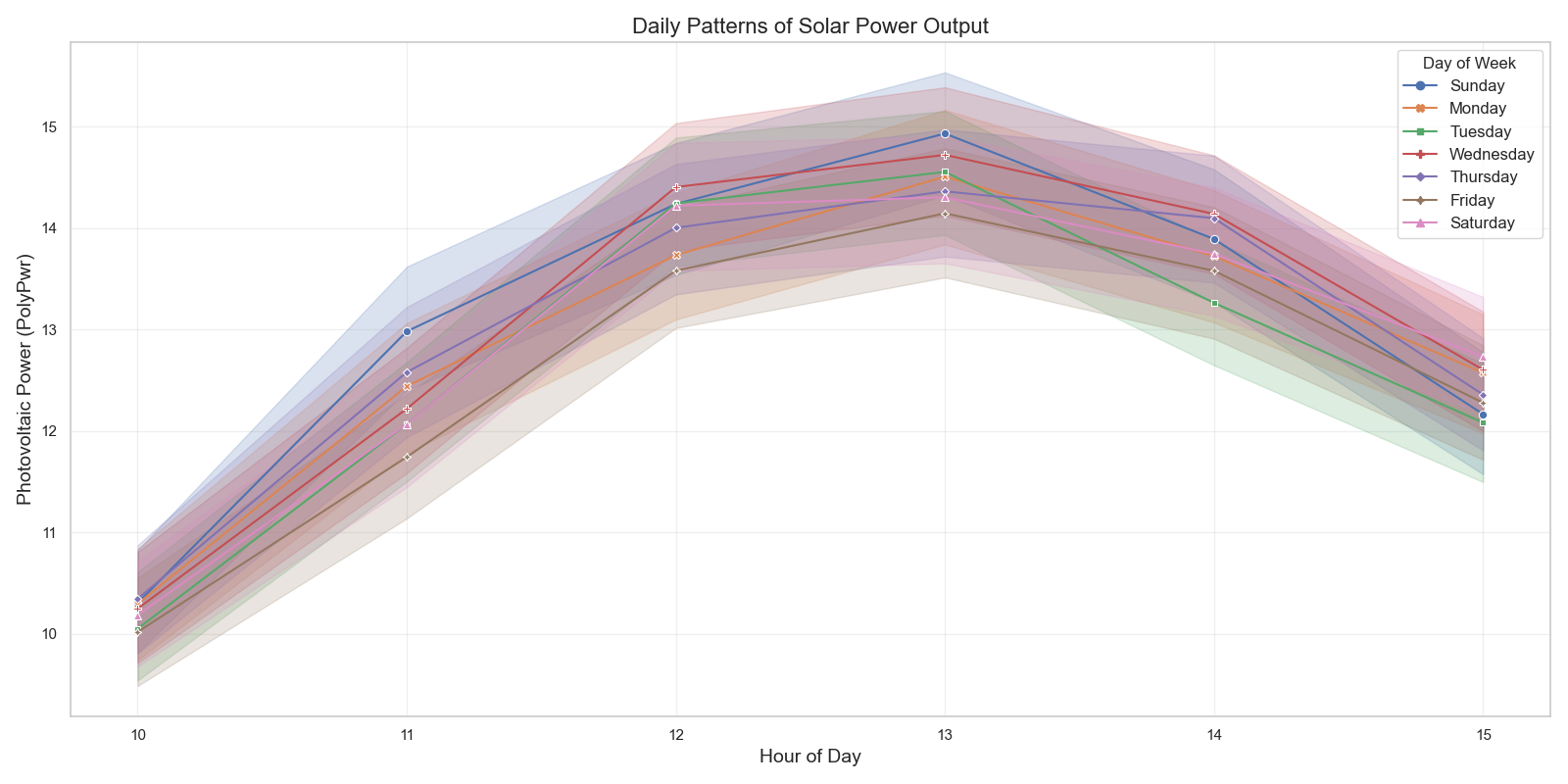SunSmartML
Latest weather data based on input
| Temperature (°C) | Humidity (%) | Pressure (hPa) | DNI (W/m²) | GHI (W/m²) | GNI (W/m²) | Solar Zenith (deg) | Wind Speed (m/s) | Cloud Ceiling (m) | Visibility (km) |
|---|---|---|---|---|---|---|---|---|---|
| Enter location and date/time, then click "Generate Prediction". | |||||||||
Watts: -
Location viewer
Accuracy of machine learning models tested:
| Model | Accuracy |
|---|---|
| Deep learning | 4 |
| LGBM | 4.1 |
| Random Forest | 4.2 |
| KNN | 4.23 |
| Linear Regressor | 4.45 |
Feature Importance
In our dataset, many features are important, but some contribute more significantly to the accuracy of the model than others.
| Feature | Importance |
|---|---|
| Temperature | 0.25 |
| Humidity | 0.20 |
| Cloud.Ceiling | 0.15 |
| Visibility | 0.10 |
| Pressure | 0.08 |
| Wind.Speed | 0.07 |
| mon(cos) | 0.05 |
| mon(sine) | 0.05 |
| hr(cos) | 0.03 |
| hr(sine) | 0.02 |
| Season | 0.05 |
Daily Power Output Patterns

This graph shows the typical daily power output patterns across different days of the week, highlighting peak production hours and variations.
How solar energy output was predicted
Using the user-provided location, date, and time, relevant weather data (Temperature, Humidity, Pressure, Wind Speed, Cloud Ceiling, Visibility) is gathered (simulated via AI). This weather data, combined with seasonal and time-based features (cosine/sine of month and hour, Season), serves as input for a pre-trained machine learning model (accessed via an API endpoint) to predict the solar energy output (PolyPwr) in watts.
Impact and Applications
Accurate solar energy prediction is crucial for optimizing renewable energy systems. It helps utilities manage grid load, allows solar farm operators to forecast generation, and aids consumers in planning energy usage. By providing insights into expected solar output based on specific location and time conditions, this tool contributes to more efficient and reliable utilization of solar power.